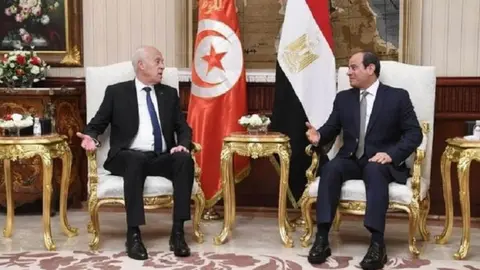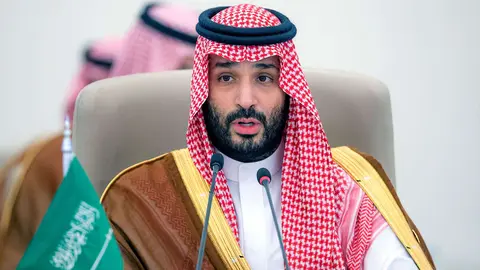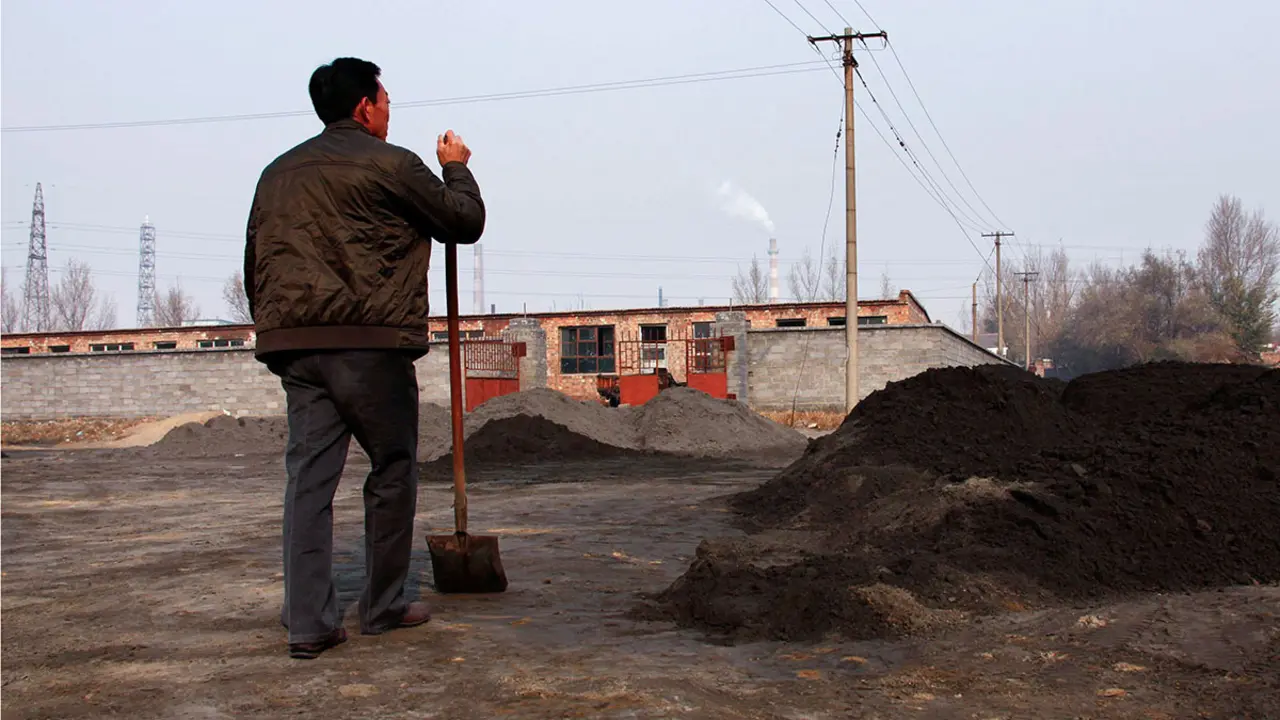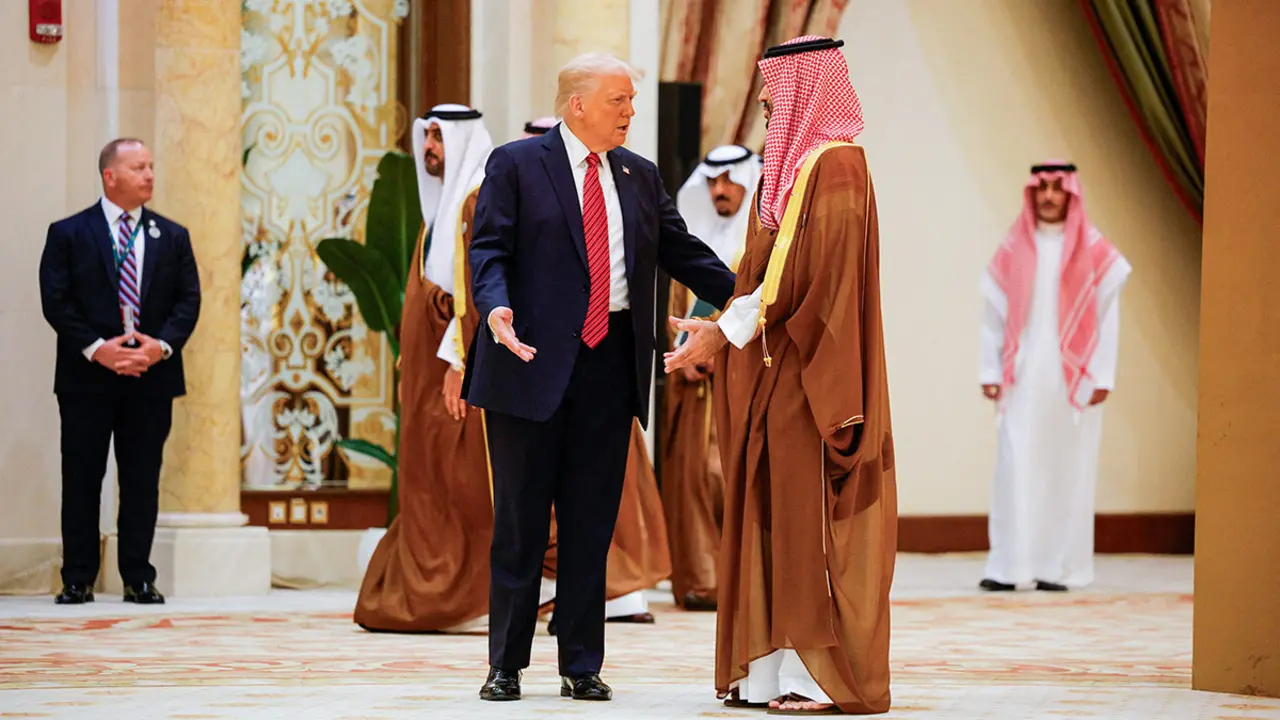Saudi Arabia takes advantage of Egypt's crisis to invest in local tech companies

For a decade, Egypt has been facing a deep economic crisis that, according to the International Crisis Group, "threatens to disrupt its domestic, economic and foreign policy, [while] aggravating public disenchantment and potentially fuelling social unrest". In this context, the Egyptian government has turned to its Gulf neighbours for external funding. While the UAE, Saudi Arabia, Kuwait and Qatar have responded favourably to this appeal by investing in the country's domestic companies, they have continued to demand economic reforms and greater transparency from their Egyptian partners.

In Egypt, an economic crisis aggravated by the consequences of the Russo-Ukrainian war
Although Egypt has experienced economic downturns before, the International Crisis Group argues that "today's woes are different". While the Egyptian economy was able to withstand the COVID-19 pandemic, it was deeply affected by the consequences of the war in Ukraine in early 2022 (oil and wheat in particular). In early 2023, the economic crisis intensified. The Egyptian economy saw its exchange rate fall to a low of 32 Egyptian pounds to the US dollar, before stabilising at around 30.
This devaluation led to a surge in inflation, which reached 31.9 % in February. Food prices have risen sharply, especially poultry, pasta, dairy products and red meat. This has had a considerable impact on the Egyptian population, especially the middle and working classes, who have had to take measures such as working several jobs and changing their diet to cope with the economic crisis.
Moreover, dollar reserves have fallen by 20 per cent, according to Jeune Afrique, to $34.2 billion, of which $28 billion comes from the Gulf. According to experts at Moody's Analytics, Cairo may not be able to repay its foreign debt, which has more than tripled in ten years (to about $155 billion).

Little intervention by the International Monetary Fund "In Cairo, all the lights are on, yet the International Monetary Fund (IMF) has only granted Egypt a loan of $3 billion," says the monthly Jeune Afrique. In 2022, the Egyptian government had initially requested a loan of twelve billion dollars, a request that was rejected by the Fund and replaced by a less ambitious aid of three billion dollars over 46 months.
In this plan, the IMF lists an unusual number of measures that Egypt must take to meet the requirements. Among them, the Fund requires Cairo to begin a process of devaluing its currency, a difficult requirement for an Egyptian government that sees a strong pound as a sign of international prestige and a means of managing global market fluctuations.
Other measures, such as phasing out fuel price subsidies and slowing down infrastructure projects, pose a major challenge for Egyptian President Al-Sissi's government. However, the measure proposed by creditors that is likely to be the most controversial between Sissi and his main supporters concerns the divestment of state-owned and military enterprises. The aim of this initiative is to reduce the government and military footprint on the economy and attract much-needed foreign investment. With IMF aid deemed insufficient, Egypt has looked elsewhere for money, especially among its Gulf neighbours.

Gulf states take a hard line on Egypt, even though they are the main providers of investment.
According to Jeune Afrique, "the major Gulf allies" were willing to invest much more in the Egyptian economy, particularly through their sovereign wealth funds and investors. James Swanston of Capital Economics also explains that Gulf countries had already started investing in the Egyptian economy in 2022, before the IMF loan arrived. In 2022 alone, as Egypt began its privatisation process, the economic publication Enterprise counted 66 equity investments, more than double the number in 2021.
The Egyptian Sovereign Wealth Fund managed to attract $3.3 billion in investments, more than the amount of IMF assistance. However, Gulf partners are working in line with the Fund, in particular by encouraging them to pressure Cairo to undertake the aforementioned structural reforms.

According to Jeune Afrique, citing Enterprise, the main players in this trend are the sovereign wealth fund of Abu Dhabi's ADQ holding company and Saudi Arabia's public investment fund. Through 40 transactions, these players have acquired significant minority stakes, worth more than $3.1 billion, in major Egyptian listed and state-owned companies. Thus, they now jointly own 41.5 % of Abu Qir Fertilizer Company and 45 % of Mopco, Egypt's two leading fertiliser producers, whose value has increased considerably in recent times.
ADQ has also become the largest private shareholder in Egypt's largest private bank, Commercial International Bank (CIB), after acquiring a 17.5% stake for $911.5 million. The Saudi fund, meanwhile, owns 25% of Egypt's state-owned e-finance company and is in talks to acquire United Bank of Egypt from the Central Bank of Egypt.

Gulf states, the most demanding creditors
"The most important thing is the support of our friends, the Emirates, Arabia and Kuwait," said al-Sissi at a summit in Dubai. However, reality shows that the Gulf states have adopted a new approach to helping countries in difficulty. For example, Saudi Finance Minister Mohammed al-Jadaan said that Riyadh "has changed the way it helps". "We used to grant budgets without conditions; now we want to see what our interest is in all this," he said in Davos in January.
According to Hafsa Halawa, a researcher at the Carnegie Middle East Center, "the Gulf allies are now seeking a majority stake in certain Egyptian state assets in exchange for additional aid". She adds that, even if the Gulf states continue to help their partner. Gulf states continue to assist their Egyptian partner, the latter will now have to "take into account their economic priorities and commercial considerations, which seem likely to determine both the shape and volume of investment flows in the coming years".

Saudi Arabia, a hub of technological progress
Recently, Saudi companies have shown increasing interest in acquiring Egyptian start-ups specialising in various technologies. This has been accompanied by a significant expansion of Saudi investment in the Egyptian technology sector. Saudi Arabia's strategy for acquiring Egyptian technology entities is to seek out local institutions that operate with less capacity in Egypt, while operating with more intensive capacity in other markets and countries.
For example, Al-Arab news agency reports that Mazid Financial Technology has revealed that it is exploring a Saudi-Egyptian alliance to acquire a 40-49 % stake. The deal is expected to be completed by the end of the year, and the funds raised will be used to finance the company's expansion into other countries.
Once again, Egyptian deep tech company Intella has raised $3.4 million in a pre-Series A funding round. The funding round was led by Saudi Arabia-based HALA Ventures and Wa'ed Ventures, the venture capital arm of Aramco. According to Arab News, the capital injection will accelerate Intella's foray into the Saudi market and support the development of artificial intelligence models tailored to audiences in the Middle East and North Africa.

In another significant development, the company's CEO and founder, Nour Taher, told Arab News that Intella had begun moving its headquarters to the Kingdom after gaining popularity in the country. The move is a testament to Saudi Arabia's progress in the field of artificial intelligence, which has become a hub of technological advancement in the Middle East.
For Walid Gad, former president of the Chamber of Information and Communication Technology Industry, investing in Egypt allows Saudi Arabia to save on labour costs, which are lower than in the Gulf. He adds that the coming period will see further deals in the sector as companies seek financing.
Gulf competition hinders local Egyptian companies' development
However, fintech companies operating in Egypt are facing crises due to drying up funding and increasing competition for a share of the sector's pie.
For Mohamed Saeed, head of the software division of Cairo's Etisal Information Technology Association, while competition among Gulf countries to invest in Egypt has had many positive consequences, it is also hurting local companies. By trading in hard currencies, large Saudi and Gulf companies indirectly impede the growth of local Egyptian companies, which cannot compete with their Gulf counterparts for workers.
Finally, the most important factor in information technology is the professional human element, says Arab News. Consequently, successive crises in Egypt and the takeover of local companies by Gulf investors could lead to a depletion of Egyptian talent.

Egypt is facing a complex and deep economic crisis, aggravated by the repercussions of the war in Ukraine. In response, Saudi Arabia's massive investments in the Egyptian economy, especially in the technology sector, have provided substantial support. However, fierce competition among Gulf investors to gain a foothold in the Egyptian market threatens local Egyptian companies, jeopardising their growth and talent. The choices Egypt makes in the coming months, in response to the demands of its increasingly demanding Gulf partners and opportunities for technological development, will have important implications for its economic and political future.
Saudi Arabia, as a hub of technological progress in the Middle East, continues to exert a growing influence on the Egyptian economy. The relationship between the two countries, marked by significant investment and shared ambitions in the technology sector, is set to play a key role in Egypt's future trajectory on the regional economic stage.











